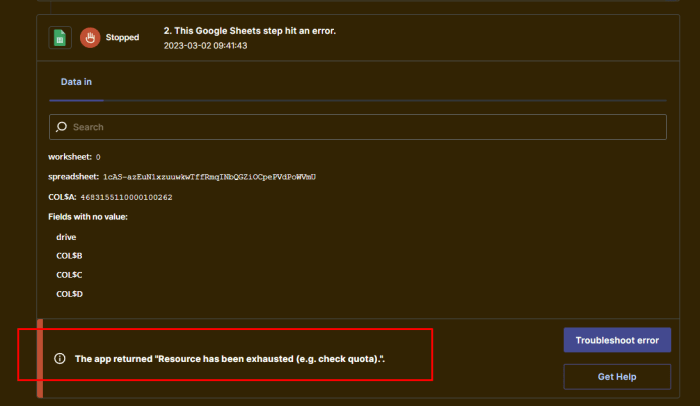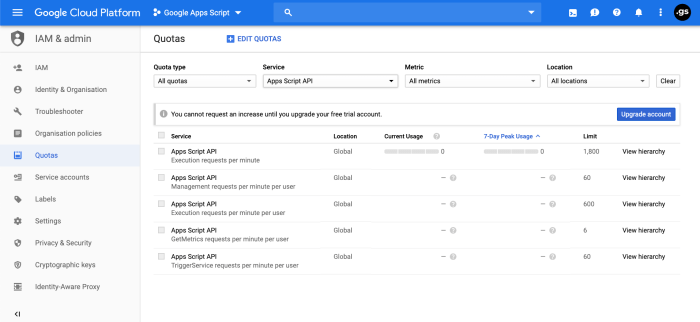Budget Considerations for Relaxing Vacations

Planning a relaxing vacation doesn’t have to break the bank. With careful consideration and planning, you can find a getaway that fits your budget without sacrificing comfort and rejuvenation. This guide will help you navigate the financial aspects of your relaxing escape, offering insights into various budget ranges and strategies for saving money.Budget ranges for relaxing vacations are highly variable, depending on several key factors.
The cost of your dream relaxation can range from a surprisingly affordable weekend retreat to a luxurious, multi-week escape. Understanding these variables will allow you to set realistic expectations and plan accordingly.
Budget Ranges for Different Vacation Types
The cost of a relaxing vacation can vary significantly depending on the type of trip you choose. A weekend getaway to a nearby spa resort might cost between $500 and $1500 for a couple, including accommodation, meals, and basic spa treatments. A week-long all-inclusive resort stay in a popular tropical destination could range from $2000 to $8000 per person, depending on the level of luxury and amenities included.
A more adventurous, yet still relaxing, trip involving hiking and camping in a national park might cost significantly less, potentially between $500 and $1000 per person for a week, excluding travel costs. These are rough estimates, and actual costs will vary based on factors discussed below.
Factors Influencing Vacation Costs
Several factors significantly impact the overall cost of a relaxing vacation. Understanding these allows for better budget allocation and planning.Accommodation is often the largest expense. Options range from budget-friendly hostels and Airbnb rentals to luxurious five-star hotels and private villas. The location of your accommodation also plays a crucial role; beachfront properties or those in popular tourist areas tend to command higher prices.
For example, a simple hotel room in a less-visited area might cost $50-$100 per night, whereas a luxury suite in a prime location could easily exceed $500 per night.Activities and excursions also contribute significantly to the overall cost. Some relaxing vacations focus on minimal activities, such as lounging by the pool or reading a book on the beach, while others might involve expensive excursions, such as scuba diving, hot air ballooning, or wine tasting tours.
Consider the types of activities you plan to engage in and budget accordingly. A day of simple beach relaxation might cost nothing beyond the initial entrance fee, whereas a guided snorkeling tour could easily cost $100 or more per person.Travel costs are another major consideration. Flights, train tickets, or car rentals can quickly add up, especially for long-distance travel.
The time of year you travel also impacts prices; peak season often sees significantly higher prices for flights and accommodation. For instance, a round-trip flight from New York to Hawaii might cost anywhere from $500 to $1500 per person depending on the time of year and how far in advance you book. Driving to a nearby destination can significantly reduce travel costs.
Finding Affordable Relaxation Options
Finding affordable options for relaxing vacations doesn’t mean sacrificing quality. Consider traveling during the off-season or shoulder season to take advantage of lower prices. Look for deals and discounts on accommodation and activities through online travel agencies or directly with hotels and tour operators. Consider alternative accommodation options, such as vacation rentals or hostels, which are often more affordable than hotels.
Pack your own snacks and meals to reduce dining costs, and take advantage of free activities, such as hiking, swimming, or exploring local parks. Planning and booking in advance can often secure better deals and allow for more flexibility in choosing accommodation and activities.
Planning a Relaxing Vacation Itinerary
Crafting a well-structured itinerary is crucial for maximizing relaxation during your vacation. A thoughtfully planned itinerary allows you to anticipate activities and minimize unexpected stressors, contributing to a more peaceful and enjoyable experience. It’s about creating a framework for relaxation, not a rigid schedule.A successful relaxing vacation itinerary balances planned activities with ample unstructured time. Over-scheduling can lead to fatigue and negate the very purpose of the vacation.
Conversely, a completely unplanned trip can result in indecision and wasted time. The key is to strike a balance.
Sample Seven-Day Relaxing Vacation Itinerary: Santorini, Greece
This itinerary focuses on a relaxing vacation in Santorini, Greece, known for its stunning sunsets, volcanic landscapes, and charming villages. It prioritizes downtime and offers flexibility for spontaneous exploration.
| Day | Activity | Location/Details |
|---|---|---|
| Day 1 | Arrival and Check-in | Settle into your accommodation in Oia. Consider a traditional cave hotel with a caldera view for an immersive experience. Spend the afternoon relaxing by the pool or exploring the charming streets of Oia. |
| Day 2 | Sunset Cruise | Enjoy a relaxing sunset catamaran cruise along the caldera. Many cruises offer drinks and snacks, allowing you to simply enjoy the breathtaking views and the company of fellow travelers. |
| Day 3 | Explore Fira | Visit Fira, Santorini’s capital, explore the shops and art galleries, and enjoy lunch at a traditional taverna. Allow ample time to wander and soak in the atmosphere. Consider a relaxing afternoon swim at a nearby beach. |
| Day 4 | Downtime and Relaxation | Spend the day unwinding. This could involve lounging by the pool, reading a book, enjoying a spa treatment at your hotel, or simply taking in the stunning caldera views from your balcony. |
| Day 5 | Wine Tasting | Visit a local winery and participate in a wine tasting tour. Santorini is known for its unique volcanic wines. Enjoy the scenery and learn about the winemaking process. |
| Day 6 | Akrotiri Archaeological Site | Explore the Akrotiri archaeological site, a Minoan city buried by a volcanic eruption. This provides a fascinating glimpse into history and a change of pace from relaxation. Follow this with a quiet evening meal. |
| Day 7 | Departure | Enjoy a final breakfast with a view before departing from Santorini. |
The Importance of Downtime and Flexibility
Incorporating downtime and flexibility is paramount for a truly relaxing vacation. Unstructured time allows for spontaneity, enabling you to follow your whims and adjust your plans based on your energy levels and mood. This prevents feeling rushed or pressured, fostering a sense of calm and rejuvenation. For example, if you feel tired after a morning activity, you can adjust your schedule to spend the afternoon relaxing instead of pushing yourself to complete a planned excursion.
This flexibility prevents the vacation from becoming another source of stress.
Activities that Promote Relaxation During a Vacation

Planning a relaxing vacation is about more than just choosing a beautiful destination; it’s about incorporating activities that actively promote stress reduction and mental well-being. By consciously scheduling time for relaxation, you can maximize the restorative power of your getaway and return home feeling refreshed and rejuvenated. This section Artikels several activities proven to enhance relaxation, offering guidance on their incorporation into your vacation itinerary.
Yoga and its Stress-Reducing Effects
Yoga, an ancient practice combining physical postures, breathing techniques, and meditation, offers a multitude of benefits for stress reduction. The physical postures increase flexibility and strength, while the breathing exercises calm the nervous system. Meditation cultivates mindfulness, helping to quiet the racing thoughts often associated with stress. Regular yoga practice has been shown to lower cortisol levels (the stress hormone) and improve mood.
To incorporate yoga into your vacation, consider attending a class at a local studio, following online tutorials in your hotel room, or simply practicing a few simple poses outdoors in a peaceful setting. Even 15-20 minutes of daily practice can make a significant difference.
Meditation for Mental Well-being
Meditation, the practice of focusing your mind on a single point of reference, such as your breath or a mantra, is a powerful tool for stress reduction. It helps to quiet the mental chatter that can contribute to anxiety and overwhelm. Studies have shown that regular meditation can reduce blood pressure, improve sleep quality, and enhance emotional regulation. To integrate meditation into your vacation, dedicate a few minutes each morning or evening to a guided meditation app or simply find a quiet spot to focus on your breath.
Even short meditation sessions can be incredibly effective.
The Therapeutic Power of Reading
Escaping into a good book offers a simple yet effective way to de-stress and unwind. Reading allows you to disconnect from the demands of daily life and immerse yourself in another world, promoting relaxation and reducing mental fatigue. The act of reading itself can be calming, slowing your heart rate and lowering blood pressure. Choose a genre you enjoy – whether it’s fiction, non-fiction, or even a lighthearted magazine – and dedicate some time each day to reading.
Consider bringing a book to the beach, relaxing by the pool, or enjoying it before bed.
Nature Walks and Their Calming Influence
Spending time in nature has been shown to have a profound impact on mental well-being. Nature walks provide an opportunity to disconnect from technology and reconnect with the natural world. The sights, sounds, and smells of nature have a calming effect on the nervous system, reducing stress hormones and promoting feelings of peace and tranquility. Incorporate nature walks into your vacation itinerary by exploring local trails, visiting parks, or simply taking a stroll along the beach.
Mindful Breathing Exercises for Relaxation
Mindful breathing techniques, such as box breathing or diaphragmatic breathing, are simple yet effective methods for managing stress and promoting relaxation. These techniques involve focusing on your breath, paying attention to the sensation of the air entering and leaving your body. This focused attention helps to calm the nervous system and reduce feelings of anxiety. Practice mindful breathing throughout your vacation, whether you’re waiting in line, sitting on a plane, or relaxing by the pool.
Listening to Calming Music for Stress Reduction
Music has a powerful effect on our mood and emotional state. Listening to calming music, such as classical music, ambient music, or nature sounds, can help to reduce stress, lower blood pressure, and promote relaxation. Create a playlist of your favorite calming music and listen to it throughout your vacation. Use it as background music while you read, meditate, or simply relax.
Spending Time with Loved Ones for Enhanced Well-being
Connecting with loved ones can significantly reduce stress and boost overall well-being. Sharing quality time with family or friends creates positive emotions and strengthens social bonds. Plan activities that you can enjoy together, such as a meal, a game, or a walk.
Engaging in Hobbies for Stress Relief
Engaging in hobbies you enjoy is a great way to unwind and de-stress. Whether it’s painting, knitting, playing a musical instrument, or gardening, dedicating time to your hobbies allows you to focus on something enjoyable and fulfilling, taking your mind off stressors. Schedule time for your hobbies during your vacation, even if it’s just for a short period each day.
Getting Sufficient Sleep for Improved Mood
Adequate sleep is essential for physical and mental well-being. Lack of sleep can exacerbate stress and negatively impact mood. Prioritize getting enough sleep during your vacation by establishing a regular sleep schedule, creating a relaxing bedtime routine, and ensuring your sleeping environment is comfortable and dark.
Enjoying a Relaxing Spa Treatment
Indulging in a spa treatment, such as a massage or facial, can be a wonderful way to relax and de-stress. Spa treatments provide a luxurious experience that helps to ease muscle tension, reduce stress hormones, and promote feelings of well-being. Consider booking a spa treatment during your vacation as a way to pamper yourself and unwind.